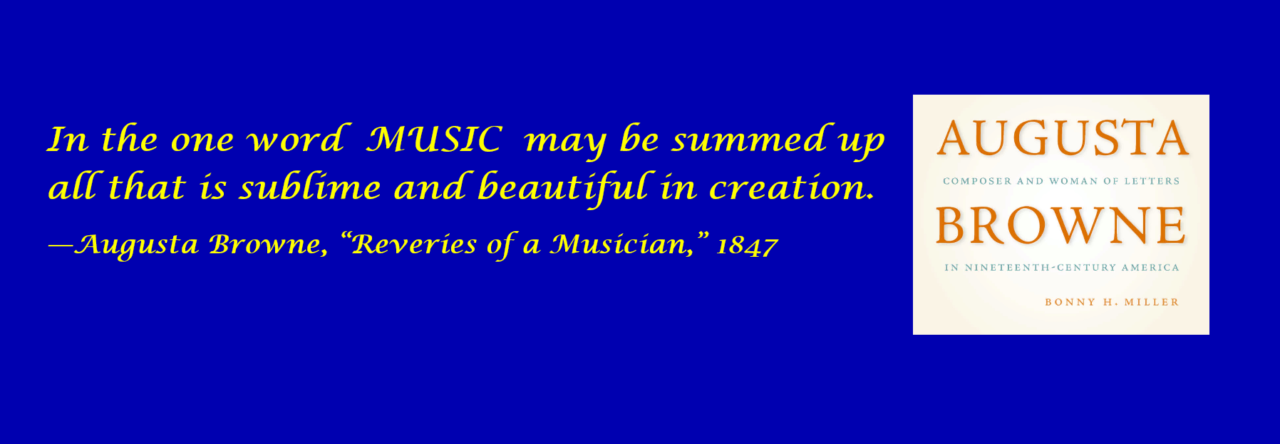AUGUSTA BROWNE
Composer and Woman of Letters in Nineteenth-Century America
Bonny H. Miller
Use promo code BB135 to receive your discount.
Augusta Browne Garrett (ca. 1820–82) was one of the professional women musicians most active in publishing sheet music in nineteenth-century America. Her lively songs and piano solos, prose, and music journalism present an engaging period voice neglected for too long.
To order Augusta Browne, click on the link below and follow the instructions through checkout. Add promo code BB135 to receive 35% discount:
TO ORDER, please visit our secure website at https://boydellandbrewer.com/9781580469722/augusta-browne/
The 2021 H. Robert Cohen/RIPM committee of the American Musicological Society expressed “high respect” for the “superlative quality of Bonny Miller’s work” and awarded Honorable Mention as a “mark of distinction” for Augusta Browne: Composer and Woman of Letters in Nineteenth-Century America. The H. Robert Cohen/RIPM Award is awarded by the AMS each year for outstanding work based on the musical press.
“Bonny H. Miller’s Augusta Browne is a superb piece of musicological scholarship. Every chapter reveals methodological mastery, nuanced analysis, engaging writing, and contagious enthusiasm for restoring a historical figure who has been undeservedly neglected.” [Journal of the International Alliance for Women in Music]
“The author deftly sets up the forces in Browne’s life, both from her family, training, and social class, and from the wider cultural world surrounding her.” “engagingly written” “richly contextualized” [Journal of Musicological Research]
“This biography is an inspiration and should be included in any graduate-level research methods class for future scholars to learn from Miller’s methodologies.” [Music Library Association Notes]
ISBN: 9781580469722; 480 pp., 20 b/w & 50 line illus., Eastman Studies in Music
Library ebook ISBN: 9781787448834





